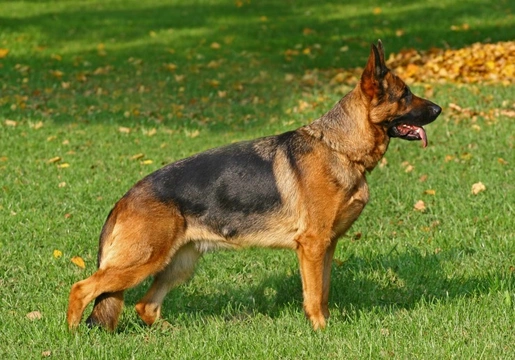
Chronic Degenerative Radiculomyelopathy (CDRM) in Dogs Explained
Chronic Degenerative Radiculomyelopathy (CDRM), also known as degenerative myelopathy, is a hereditary spinal cord disease that progressively affects dogs' mobility, especially in their hind legs.
This condition is caused by a mutation in the SOD1 gene, present to some extent in the gene pool of over forty dog breeds. Breeds at higher risk, including the German shepherd, Pembroke Welsh corgi, and Boxer, have testing schemes to help breeders understand their dogs' genetic status before breeding.
The disease leads to progressive weakness and loss of coordination in the hind legs due to spinal cord damage, eventually causing paralysis. Fortunately, the condition is not painful, but it is degenerative and irreversible.
More about Chronic Degenerative Radiculomyelopathy
CDRM primarily affects middle-aged to older dogs (typically between 5 and 11 years, with an average of 9 years). It slowly damages the myelin sheath around neurons in the spinal cord, hampering communication between nerves and the brain.
Despite ongoing research, the exact mechanisms remain unclear, but the disease is similar in some ways to amyotrophic lateral sclerosis (ALS) in humans. The loss of proper nerve function eventually impacts the dog's ability to stand and walk, requiring ongoing supportive care or humane euthanasia once quality of life deteriorates.
Breeds most affected and heredity patterns
CDRM has been detected in over forty breeds but is most common in large, working, or herding dogs such as the German shepherd, Boxer, and Pembroke Welsh corgi. Crossbreed dogs may inherit the gene mutation if they descend from affected breeds, but expression depends on the combination of genes inherited.
The condition is inherited in an autosomal recessive manner, meaning puppies must inherit two copies of the mutated gene—one from each parent—to be affected. Dogs are categorized as clear (no copies), carrier (one copy), or affected (two copies), and breeding matches determine the puppies' genetic status:
- Two clear dogs will produce clear puppies.
- Two affected dogs will have affected puppies.
- Two carriers will produce approximately 25% affected, 50% carriers, and 25% clear puppies.
- A clear and affected pairing results in all carrier puppies.
- A carrier and clear pairing produces 50% carriers and 50% clear puppies.
- A carrier and affected pairing leads to 50% carriers and 50% affected puppies.
Testing and Responsible Breeding
Responsible breeders in at-risk breeds use DNA testing approved by The Kennel Club and British Veterinary Association to determine their dogs' CDRM status. Testing involves submitting a sample from your vet to an authorised laboratory, providing breeders with information that guides mating choices to reduce the likelihood of affected puppies.
If you are considering breeding a dog from a breed predisposed to CDRM, testing is strongly recommended to promote healthy breeding practices and canine welfare.
Supporting Dogs Affected by CDRM
Although there is no cure or way to reverse CDRM, certain strategies can help maintain quality of life as long as possible. Regular veterinary checkups, physical therapy, and mobility aids like harnesses or carts may assist mobility. Preventing pressure sores and managing secondary complications is vital in advanced stages.
Owners and carers should work closely with their veterinary team to provide compassionate care tailored to the dog's needs and avoid unnecessary suffering.
Summary and Next Steps
Chronic Degenerative Radiculomyelopathy is a serious, progressive condition primarily affecting older, certain large breed dogs. Understanding its genetic basis, recognising early symptoms, and pursuing testing are essential steps toward responsible breeding and the best supportive care.
For those contemplating acquiring or breeding dogs from breeds at risk, seek reputable breeders who participate in CDRM testing schemes and prioritise health and welfare.



